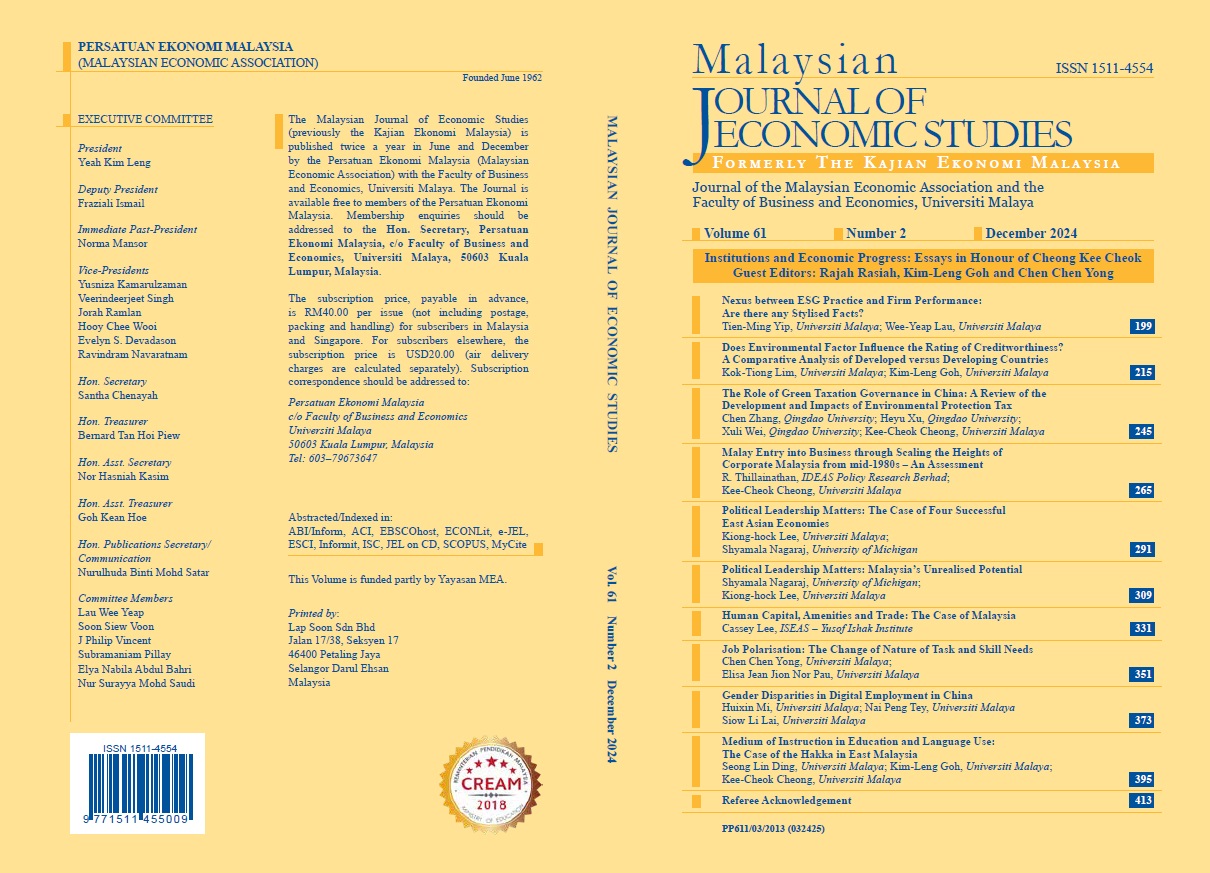Does Environmental Factor Influence the Rating of Creditworthiness? A Comparative Analysis of Developed versus Developing Countries
DOI:
https://doi.org/10.22452/MJES.vol61no2.2Keywords:
Sovereign credit ratings, ESG, environmental impact, renewable energyAbstract
This paper examines the influence of environmental factor in the determination of a country’s creditworthiness given the world’s agenda to contain the rise in global temperature. This paper leverages on two environmental factor proxies, CO2 emissions per capita and renewable energy per capita, to assess whether the environmental factor plays a significant role in determining the sovereign credit ratings (SCRs) issued by three leading credit rating agencies (CRAs), i.e., Moody’s, S&P and Fitch for 49 countries spanning the period of 2000 to 2021. The empirical results show that the environmental factor is being considered by the CRAs. Since the signing of the Paris Agreement in 2015, the environmental factor has turned significant for the determination of the SCRs of developing countries, but not for the developed countries. The creditworthiness of developing countries is subjected to a penalty for CO2 emissions. While the level of renewable energy adoption is higher amongst the developed countries, the evidence does not show that their level of CO2 emissions is lower. This paper recommends the CRAs to explicitly state the environmental factor criteria and update their SCR methodologies to ensure uniformity in application.

